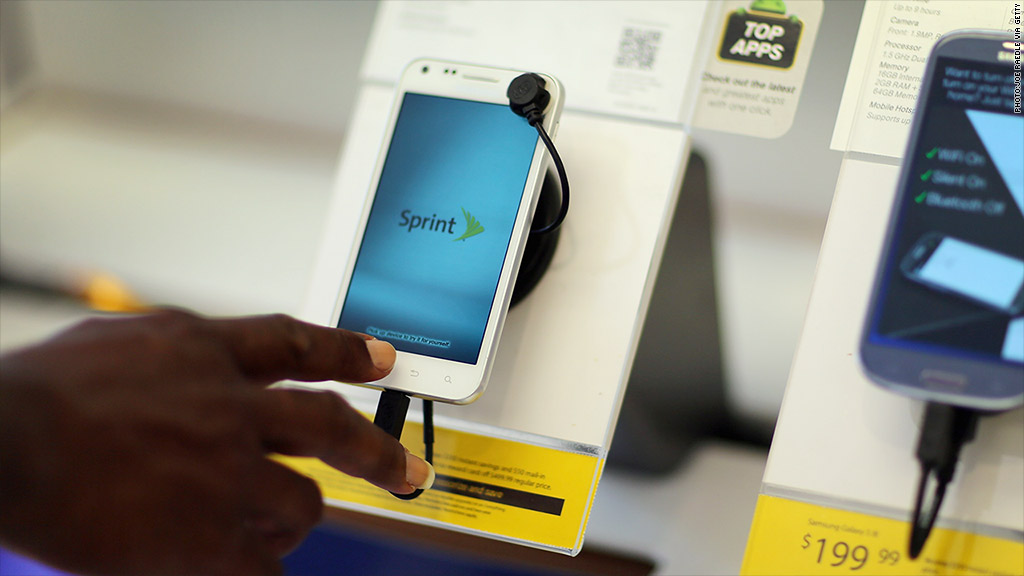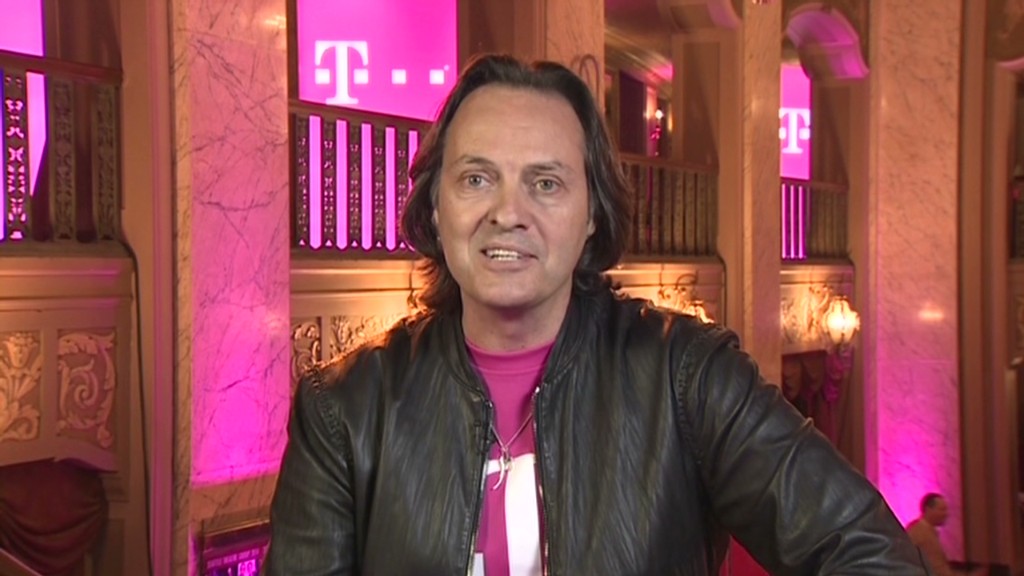
Sprint is probably in its best shape in a decade. That's not a good thing.
The company was a hot financial mess after its disastrous 2005 merger with Nextel. It bet on the wrong 4G wireless technology (remember Wi-Max? No? Exactly). It had a jumbled mess of five incompatible networks. It had the worst customer service for ages.
Amazingly, that's all water under the bridge. Sprint (S) has done a remarkable job turning itself around over the past few years under former CEO Dan Hesse's leadership. Sprint has improved its customer service, built a 4G-LTE network in record time, and amassed more wireless spectrum (the airwaves that cell phone data travel on) than any other carrier.
Yet Sprint still kinda sucks. Though its speeds are improving, Sprint still has by far the slowest 4G network of its rivals. It was rated the worst cell phone service in the nation by Consumer Reports last year. And it continues to hemorrhage money and lose customers.
Unsurprisingly, Sprint is now the smallest of the "Big Four" national carriers after T-Mobile (TMUS) passed it by in the spring.
Related: Sprint and T-Mobile plunge after abandoning merger plans
Sprint's obvious path forward would have been merging with T-Mobile. But the U.S. government was never going to let that happen, and Sprint hinted Wednesday it has stopped pursuing an acquisition -- at least for now.
So how can new CEO Marcelo Claure turn Sprint around? Claure took the reins Wednesday, saying he would "reposition" Sprint to make it more "cost efficient" and "aggressive in the marketplace." What will be different for Sprint customers, they're not saying.

"Sprint's focus, moving forward under Claure's leadership, is to make Sprint the most successful wireless carrier in the U.S.," said Sprint spokeswoman Roni Singleton.
That's a noble goal, but it's going to be hard to get there. Claure should start with the company's biggest problem: It lacks an identity.
Whether or not they're true, Sprint's competitors have all done a good job telling their stories to consumers. Verizon (VZ) has the best service. AT&T (T) has the fastest network. T-Mobile is the "Uncarrier."
Sprint is ... the Framily company? The yellow one? What is it?
Related: Choosing the cheapest cell phone plan is a headache
"Sprint has to re-energize the brand, because the old brand is tired," said Jeff Kagan, an independent telecommunications analyst. "But if T-Mobile could do it, Sprint can do it."
T-Mobile was in even more dire straits than Sprint is now before CEO John Legere took over the company a year ago and launched its wildly popular "Uncarrier" motto. Since then, T-Mobile has rapidly scooped up customers and Febreezed off most of the stink that surrounded its brand.
But T-Mobile was in a very different situation. It just completed a mega-merger with MetroPCS. It had the ability to slash prices and lose money to build its user base (and it's doing just that).
So far, Sprint hasn't gone that route -- it has positioned itself to be a Junior AT&T or Verizon Lite. That's not going to win over many customers. But slashing prices isn't a guaranteed success either, since T-Mobile has cornered that market.
That's why Sprint is likely best served focusing on the next wave of wireless tech. Everyone with a smartphone already has one -- it's no longer a huge growth industry. That's why wireless carriers are going into home security, health care, home automation and automobile businesses.
"If Sprint can focus on helping other industries, by using its wireless network to advance our lives, there is a huge opportunity to turn around and grow the company rapidly," said Kagan. "There's no reason why Sprint couldn't be a completely different, growth-oriented company a year from now."
We'll see.

